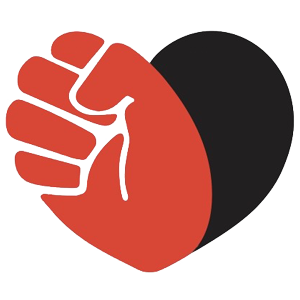Learning about new ideas and social movements means learning new terminology. Here’s our list of things to know.
* 2257 laws: The United States federal laws that requires porn producers to keep strict records of performers’ work and documentation of their legal ages. Adult industry trade group the Free Speech Coalition has led the fight against overly-broad and burdensome aspects of the regulations.
* Ally: A term borrowed from the queer rights movement, an ally to sex workers is a supporter or friend. The best way to be an ally is to listen to sex workers themselves and, when asked, help them in attaining their goals.
* Bad date list / black list: Information circulated by sex workers (either publicly or privately) to warn one another of bad experiences with violent clients, those who robbed or underpaid them, or people who otherwise pose a danger. Checking bad date lists is a common part of screening a potential client.
* BDSM: An umbrella term often used to cover all sorts of consensual kink activities, such as bondage, discipline, sadism, masochism, dominance, submission, and role play. BDSM is not the same thing as nonconsensual abuse or violence.
* Cal-OSHA: The California Division of Occupational Safety and Health, the government body in charge of workplace safety regulations in California, where much of American porn is made. Under pressure from anti-porn activists, Cal-OSHA is currently trying to squash the adult industry through over-regulation of “safety,” in spite of the expressed desires of performers to not have the government force condoms and other barriers to be used in porn.
* Cisgender: The counterpart to transgender, a cisgender person is one who feels as though their inner gender identity and their physical body matches up.
* Criminalization: Also referred to as prohibition, criminalization is a government’s absolute ban on a given form of sex work, generally used when speaking of prostitution.
* December 17th: The International Day to End Violence Against Sex Workers, a global day of remembrance for sex workers who were victims of violence during. This day is used to draw attention to the conditions that enable and perpetuate violence and crime against sex workers.
* Decriminalization: Unlike legalization, with its special restrictions and/or licensing fees imposed on sex workers, decriminalization is the treatment of sex work like any other kind of work. SWAAY, and most sex workers, support full decriminalization.
* Harm reduction: A reality-based policy or methodology that seeks to reduce the potential harms of high risk behaviors rather than to criminalize and ignore them. Example of harm reduction tactics include offering needle exchanges to drug users to reduce their risks of contracting blood-borne diseases, or distributing condoms and birth control information to groups like high schoolers or sex workers. Opponents to the harm reduction approach advocate a zero tolerance approach towards risky behaviors, preferring to believe that if you criminalize or shame an activity, it (and its side effects) will magically disappear.
* Hobbyist: A type of male client who makes hiring, reviewing, and talking about escorts/prostitutes with his fellow hobbyists a significant part of his life.
* Incall: A location rented or owned by a sex worker to see their clients. It could be a more permanent space like a private dungeon, or a hotel room hired just for a day. An advertisement might read “incall only,” which means that the worker only sees clients in their own space, and does not go to private homes or hotel rooms.
* Independent/indie: A term used to describe sex workers who do not work for an agency, brothel, club, or house of domination. They operate their own businesses by doing their own advertising, screening, and often maintaining their own incall spaces where they see clients.
* Legalization: The restriction and control of sex work by various laws. For example, there is legalized prostitution in some parts of Nevada, but the industry is highly regulated and confined to brothels and workers who are registered with the state and have paid for licenses.
* Provider: A term used by some sex workers to describe themselves. It is especially common with sex workers who offer new age, Tantric, or “spiritual sex” services.
* Red umbrella (imagery): Red umbrellas are a symbol of the sex workers’ rights movement. According to researcher Laura Agustín, it began in October 2005 in Brussels at a march. It was supposed to rain that day, so the group decided to get matching umbrellas, in red for both workers’ rights and red light districts. The red umbrella concept stuck, and continues to be a recognizable icon today.
* Screening: The process of verifying information about a prospective client to see if they are who they claim to be. This might involve calling their references (other sex workers they have seen before), verifying their address and place of employment, checking “bad date lists” to see if they have cheated or attacked other sex workers, and/or searching for any criminal background records.
* Sex worker: A person who exchanges their own sexual labor or sexual performance for compensation, such as an escort/prostitute, porn star, stripper, dominatrix, phone sex operator, sensual masseuse, or web cam performer. Sex workers are part of the larger sex industry – which includes movie directors, club owners, webmasters, retail stores, and more – but are distinct because their job involves making money off of their own sexual labor, not writing about, photographing, managing, or selling the sexual labor or performances of others. The term “sex work” was coined in the early 1980s by Carol Leigh, and was popularized by a 1987 anthology of the same name.
* STI: A Sexually Transmitted Infection, such as chlamydia, herpes, or HIV.
* SWOP: The Sex Workers Outreach Project. A popular network of sex workers’ rights groups, mostly located in the US, and now also Australia.
* Trafficking: “Human trafficking” is a complex issue of labor, class, choice, and migration, but it is most commonly reduced to underage sex trafficking/slavery by groups whose real goal is to stop even consensual sex work. (The UN protocols that distinguish “smuggling” and “trafficking” rely on sexist ideas that women are vulnerable victims, but that men choose to be smuggled.) Most “human trafficking” is in workers for agriculture and domestic labor, but stories of fruit-pickers and nannies don’t generate TV specials and celebrity spokespersons. Anti-trafficking campaigns and police raids based on grossly inflated estimates of forced trafficking tend to find few real victims, and end up arresting large groups of consensual adult sex workers in the process. Sex worker-led organizations in the developing world, such as the Asia Pacific Network of Sex Workers, fight against “rescue operations” and imprisonment in “rehabilitation centers” forced upon them by western NGOs. Researcher Laura Agustín has both an excellent book and a blog that re-examines what we think we know about trafficking and migrant labor politics. Like other sex workers’ rights groups, SWAAY is opposed to forced trafficking, but we see sex workers as part of the solution, not part of the problem.
* Transgender/trans: Umbrella terms used to describe people whose gender identity does not match up with their physical/genetic sex (male or female). More precise terms include genderqueer, transsexual, Two Spirit, or bigender. Trans people may or may not choose to alter their bodies with the use or hormones and surgery.

